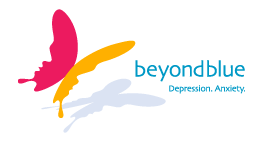 People may be at risk of developing anxiety or depression after experiencing a traumatic event or a natural disaster like a bushfire, flood, cyclone or earthquake.
People may be at risk of developing anxiety or depression after experiencing a traumatic event or a natural disaster like a bushfire, flood, cyclone or earthquake.
In Australia, we’re used to floods, storms, fires, cyclones and prolonged drought. Occasionally, severe disasters occur and can catch even the most conscientious and well-prepared people off-guard. Lives and property can be lost with little warning, causing a great deal of heartache and suffering.
Immediately after a serious disaster, you may experience a range of thoughts, feelings and behaviour that can be intense, confusing and frightening. These are common reactions to an extraordinary situation. Most people recover after disasters by drawing on their own strengths and the support of others, and most will gradually rebuild their lives and achieve a sense of wellbeing again.
However, some people may go on to develop a psychological problem. It’s important to know the difference between a normal reaction to a stressful or potentially traumatic event and the signs that indicate you should seek additional support.
Normal reactions
- Feeling overwhelmed
- Feeling numb and detached
- Inability to focus
- Inability to plan ahead
- Constant tearfulness
- Intrusive memories or bad dreams related to the event
- Sleep disturbances
- Constant questioning – “What if I had done x, y or z, instead?”
- ‘Replaying’ the event and inventing different outcomes in order to be prepared should it happen again.
These reactions can be severe and are at their worst in the first week after the event, however, in most cases, they fade over a month. If a person’s day-to-day functioning is seriously affected for more than two months after the event, it’s important to discuss it with a GP or mental health professional.
Beyond a normal reaction
If you experience any of these symptoms at any time, seek professional help:
- a sense that the emotional and physical reactions are not normal
- thoughts of ending your life or self-harm
- loss of hope or interest in the future
- avoiding things that bring back memories of what happened to the point where you’re unable to carry out day-to-day tasks
- being startled easily e.g. jumping when a door slams
- feeling overwhelming fear for no obvious reason
- panic attack symptoms: increased heart rate, breathlessness, shakiness, dizziness and a sudden urge to go to the toilet
- excessive guilt about things that were or weren’t said and done.
Dealing with the emotional impact of a disaster
Do:
- spend time with people who care
- give yourself time
- find out about the impact of trauma and what to expect
- try to keep a routine going e.g. work, study
- return to normal activities
- talk about how you feel or what happened when ready
- do things that help you relax
- set realistic goals – don’t take on too much, but try to find goals that keep you motivated
- review and reward progress – notice even the small steps
- talk about the ups and downs of recovery with friends, family and the health professionals involved in your care
- have a plan to maintain positive changes and plans to deal with times of stress or reminders of the trauma.
Don’t:
- use alcohol or drugs to try to cope
- keep yourself busy and work too much
- engage in stressful family or work situations
- withdraw from family and friends
- stop yourself from doing things that you enjoy
- avoid talking about what happened
- take risks.
Resources
beyondblue has produced two resources for people who have experienced a traumatic event or disaster.The Looking after yourself and your family after a disaster booklet is designed to help you understand the reactions you – or someone you know – may be experiencing. It contains practical advice, numbers to call and websites to visit if you need more information or support.The booklet was developed by beyondblue, the Australian Centre for Posttraumatic Mental Health, Australian Red Cross and the Australian Centre for Grief and Bereavement.Our Emotional responses after a disaster flyer is a quick guide to the normal or beyond normal reactions you may experience. It also provides some tips on how to deal with the emotional impact of a disaster.
Need support or information around depression and anxiety, for yourself, a friend or family member?
The beyondblue Support Service provides advice and support via telephone 24/7 (just call 1300 22 4636), daily web chat (between 3pm–12am) and email (with a response provided within 24 hours).














